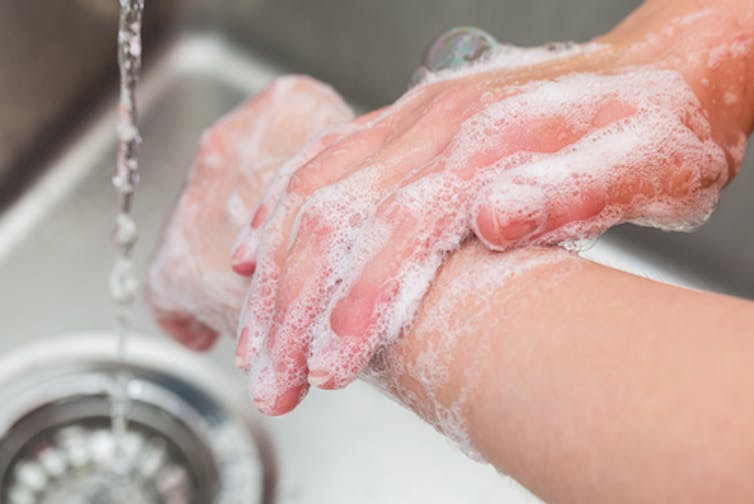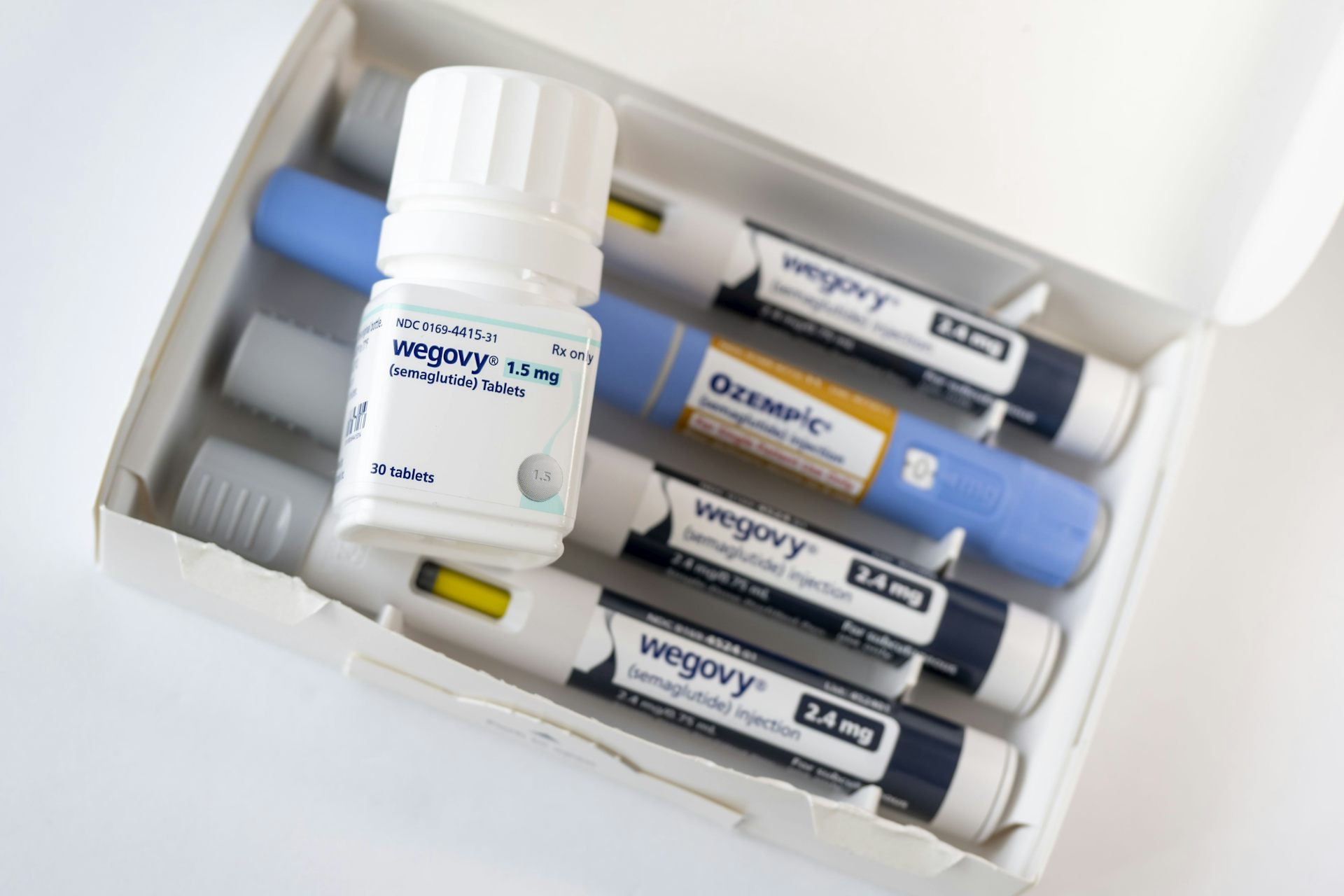Why washing your hands well is so important to protect your family from the flu
Regular hand washing is important not only to keep from getting the flu but also to prevent passing it to others, such as young children and seniors, who may be even more vulnerable. Here's how.

During my second year of graduate school, I moved in with my sister’s family to save money. “You must get the flu shot if you are going to live here,” my sister declared. Both of my nieces were under the age of 5, putting them at a high risk of flu complications; therefore, it was critical that I do my part in, first, getting vaccinated to minimize my risk of getting the flu, and second, not passing the flu to a vulnerable population. A key part of this was, and still is, washing my hands regularly.
This is serious business. The Centers for Disease Control and Prevention estimates that more than 900,000 people were hospitalized from the flu last season and more than 80,000 people died in the U.S. As the flu season approaches, it’s important to marshal all our defenses against influenza.
As someone who has a history of fainting after shots, including an experience that resulted in multiple stitches just shy of my temple, I understand high anxiety when it comes to needles. But in the evenings when my 4-year-old niece is looking at the intriguing images within my microbiology textbook and asks with each turn of page, “Auntie Chelle, what’s that?” I couldn’t fathom putting her at a higher risk of the flu or any sickness by not getting vaccinated or not washing my hands regularly.
How does the flu virus spread?
The flu virus spreads by droplets made from a cough, sneeze or talk of people who are infected. These droplets can land within the mouths, lungs or noses of people up to 6 feet away. Heavily populated places, such as schools or airports, could increase the transmission of the virus and put people at higher risk of getting the flu. It’s also possible to get the flu by touching a surface, such as chairs, tables or door handles that has flu virus on it and then touching your own mucous membranes in your mouth, nose or eyes. A behavioral study of medical students at the University of New South Wales found that of the 26 participants, students touched their face an average of 23 times per hour and 44 percent of the time it was in contact with a mucous membrane.
With flu season ahead of us and also our holiday travels, do we really stand a chance of preventing the spread of the flu and other germs by keeping our hands clean? Yes, but it takes some work.
Two-fisted approach
There are two main strategies in hand washing.
The first is to decrease the overall biomass of microbes – that is, decrease the amount of bacteria, viruses and other types of microorganisms. We do this by lathering with soap and rinsing with water. Soap’s chemistry helps remove microorganisms from our hands by accentuating the slippery properties of our own skin.
Studies have shown that effectively washing with soap and water significantly reduces the bacterial load of diarrhea-causing bacteria.

The second strategy is to kill the bacteria. We do this by using products with an antibacterial agent such as alcohols, chlorine, peroxides, chlorhexidine or triclosan.
Some academic work has shown that antibacterial soaps are more effective at reducing certain bacteria on soiled hands than soaps without them.
However, there’s a problem. Some bacterial cells on our hands may have genes that enable them to be resistant to a given antibacterial agent. This means that after the antibacterial agent kills some bacteria, the resistant strains remaining on the hands can flourish.
Further, the genes that allowed the bacteria to be resistant could pass along to other bacteria, causing more resistant strains. Together, the “take-over” of resistant strains would render the use of the antibacterial agent essentially ineffective.
Also, the long-term use of some antibacterial products may harm your health.
For example, animal studies investigating the antibacterial agent triclosan, which used to be in soaps, toothpastes and deodorant, has been shown to alter the way hormones work in the body. The Food and Drug Administration has prohibited the use of over-the-counter antiseptic wash products containing triclosan and many other antibacterial active ingredients.
Nonetheless, the flu is caused by a virus, rendering products with antibiotics useless.
With this in mind, you may want to stick with plain old soap and water.
Best practices

To clean our hands, the CDC recommends that we:
- wet hands with clean water
- apply soap and lather/scrub every nook and cranny of your hands for 20-30 seconds (about the time to sing “Happy Birthday” twice)
- rinse well with clean running water
- dry hands with a clean paper towel or air-dry.
I was shocked to read a study that indicated that 93.2 percent of 2,800 survey respondents did not wash their hands after coughing or sneezing. Also, one study showed that across a college-town environment with observations of 3,749 people, the average hand-washing time was approximately six seconds.
If soap and water are not unavailable, the CDC recommends using an alcohol-based hand sanitizer that contains at least 60 percent ethanol. Alcohols have a broad-spectrum of antimicrobial activity and are less selective for bacterial resistance compared to other antibacterial chemicals.
However, alcohol-based hand sanitizers may not work on all classes of germs.
So what is the take-home message?
There is no doubt that washing our hands with liquid soap and water is effective in reducing the spread of infectious microorganisms, including those that are resistant to antimicrobial agents.
When you don’t have the opportunity to wash your hands after touching questionable surfaces, use an alcohol-based hand sanitizer. Limit the touching of your hands to your mouth, nose and eyes.
Further, build additional protection against pathogens via maintaining a balanced gut-bacteria community by “fertilizing” them with a diversity of plant-based foods.
It’s not only a small world, but a dirty one as well.
Editor’s note: This is an updated version of an article that originally was published Dec. 13, 2017.
Michelle Sconce Massaquoi no es asalariado, ni consultor, ni posee acciones, ni recibe financiación de ninguna compañía u organización que pueda obtener beneficio de este artículo, y ha declarado carecer de vínculos relevantes más allá del cargo académico citado.
Read These Next
Operational secrecy kept the US from making evacuation plans – and that means Americans in the Midea
A longtime diplomat explains how the State Department normally encourages and helps Americans to leave…
How Denver’s Northeast Park Hill community reduced youth violence by 75%
A neighborhood coalition identified risk factors for youth violence and prevention strategies.
Why are some stars always visible while others come and go with the seasons?
From Earth spinning on its axis and orbiting the Sun to it precessing like a top, lots of factors affect…






